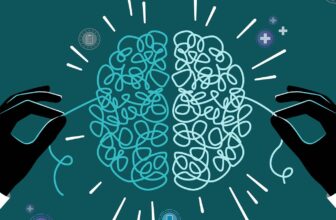What is Ego States? Explain the types of Ego states ?
EGO STATES.
The ego plays an essential role in human behaviour. According to Berne, although we cannot directly observe these ego states, we can observe behaviour and from this infer which of the three ego states are operating at that moment. A balance between three ego states gives way for a healthy person who can easily move from one ego to another.
Parent Ego State.
This is a set of feelings, thinking and behaviour that we have copied from our parents and significant others. As we grow up we take in ideas, beliefs, feelings and behaviors from our parents and caretakers. If we live in an extended family then there are more people to learn and take in from. When we do this, it is called interjecting and it is just as if we take in the whole of the care giver.
For example, we may notice that we are saying things just as our father, mother, grandmother may have done, even though, consciously, we don’t want to. We do this as we have lived with this person so long that we automatically reproduce certain things that were said to us, or treat others as we might have been treated.
There are two forms of Parent ego states:
- Nurturing Parent.
- Critical Parent.
The Nurturing Parent is caring and concerned and often may appear as a mother figure. They seek to keep the Child contented, offering a safe haven and unconditional love to calm the Child’s troubles. The Controlling Parent, on the other hand, tries to make the Child do as the parent wants them to do, perhaps transferring values or beliefs or helping the Child to understand and live in society. They may also have negative intent, using the Child as a whipping boy or worse.
Adult Ego State.
The Adult ego state is about direct responses to the here and now. We deal with things that are going on today in ways that are not unhealthily influenced by our past. The Adult ego state is about being spontaneous and aware with the capacity for intimacy. When in our Adult we are able to see people as they are, rather than what we project onto them. We ask for information rather than stay scared and rather than make assumptions. Taking the best from the past and using it appropriately in the present is.an integration of the positive aspects of both our Parent and Child ego states. So this can be called the Integrating Adult.
Child Ego State.
The Child ego state is a set of behaviors, thoughts and feelings which are replayed from our own childhood. Perhaps the boss calls us into his or her office, we may immediately get a churning in our stomach and wonder what we have done wrong. If this were explored we might remember the time the head teacher called us in to tell us off.
Of course, not everything in the Child ego state is negative. We might go into someone’s house and smell a lovely smell and remember our grandmother’s house when we were little, and all the same warm feelings we had at six year’s of age may come flooding back.
Both the Parent and Child ego states are constantly being updated. For example, we may meet someone who gives us the permission we needed as a child, and did not get, to be fun and joyous. We may well use that person in our imagination when we are stressed to counteract our old ways of thinking that we must work longer and longer hours to keep up with everything. We might ask ourselves “I wonder what X would say now”.
Then on hearing the new permissions to relax and take some time out, do just that and then return to the work renewed and ready for the challenge.
Subsequently, rather than beating up on ourselves for what we did or did not do, what tends to happen is we automatically start to give ourselves new permissions and take care of ourselves. Alternatively, we might have had a traumatic experience yesterday which goes into the Child ego state as an archaic memory that hampers our growth.
Positive experiences will also go into the Child ego state as archaic memories. The positive experiences can then be drawn onto remind us that positive things do happen. There are several forms of the Child ego state. Muriel and Jogeward in their book, Born to Win, have said that the most popular child ego states aNatural Child, Adaptive Child and Little Professor.
The Natural Child is largely un-self-aware and is characterized by the non-speech noises they make. They like playing and are open and vulnerable. The Natural Child is affectionate, impulsive, sensuous, uncensored and curious.
The cutely-named Little Professor is the curious and exploring Child who is always trying out new stuff. Together with the Natural Child they make up the Free Child. When a child acts like the Little Professor, he figures things out and often believes in magic. He responds to non-verbal messages and plays hunches.
The Adaptive Child reacts to the world around them, either changing them to fit in or rebelling against the forces they feel. The adaptive child is the trained one and he is likely to do what parents insist on, rational or irrational, and may learn to feel non-OK. The Adapted Child is a socialized one.



